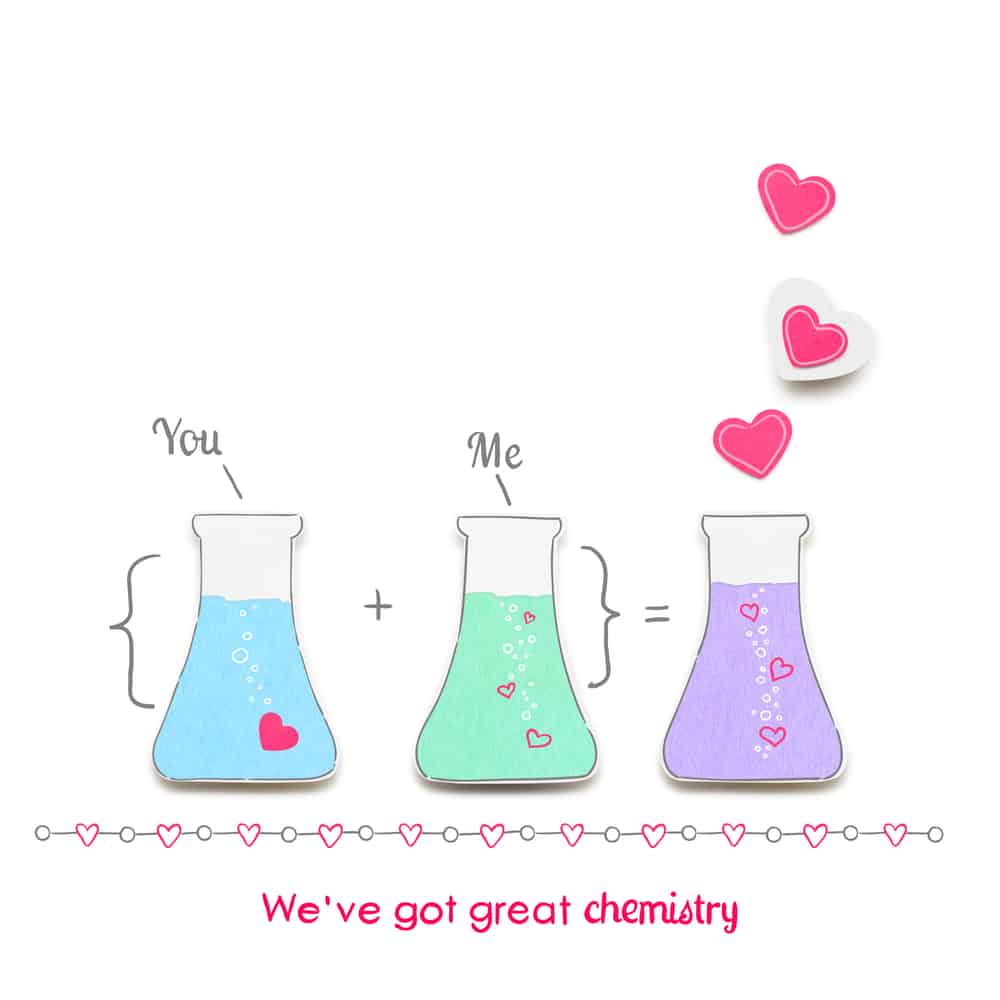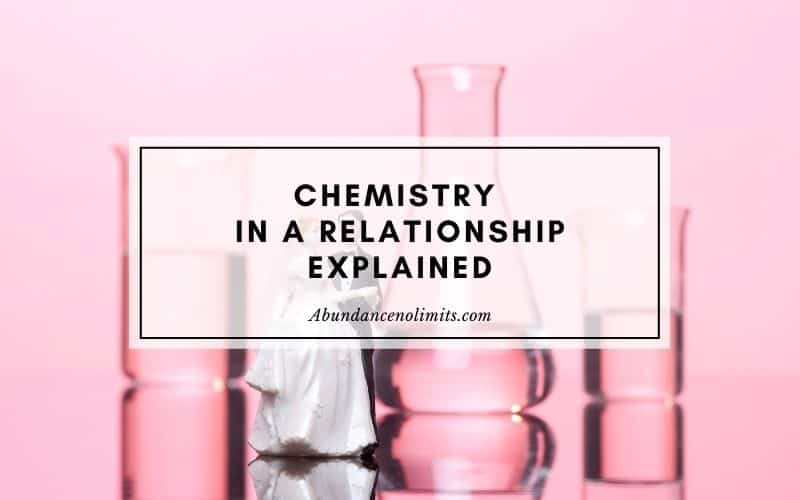In a relationship, we often refer to chemistry, compatibility, and infatuation. While chemistry and compatibility can strengthen a relationship, infatuation makes it superfluous and short-lived.
So, what are the definitions of these terms? What does it mean to have chemistry with someone? What is the difference between chemistry and compatibility?
This article guides you through the maze and helps you understand the nitty-gritty of relationships. And you would also find here how to improve the chemistry in a relationship.
What is chemistry in a relationship?
Chemistry is considered a mystery ingredient in a relationship that can help in making it work. Often found difficult to quantify or pin it down to something, “chemistry” is used interchangeably with words like love, vibes, attraction, and connection.
Chemistry is something you feel towards the other person – an emotional association that is hard to describe and put into words. When chemistry exists in a relationship, it evokes a warm fuzzy feeling for each other. This creates a circle of positive feelings that aids in making each other feel better.
When you are having chemistry with someone, you feel at ease in their presence and they would be constantly in your thoughts when apart. When together conversation flows unrestrained and unhindered.
Chemistry is not something experienced by one partner in a relationship. Felt by both equally, chemistry affects the disposition and behavioral patterns of both. They mirror each other’s feelings.
The reason for the existence of chemistry in a relationship is harder to pinpoint. In some cases, it is the similarity between the two individuals involved, in others it is the presence of dissimilarities, contrasts, or contradictory elements.

Chemistry vs compatibility
It is common to hear the words “chemistry” and “compatibility” used in the same sense. Superficially, both words are used to describe the relationship that exists between two individuals – the undefinable and invisible connection or the lack of it.
Understanding the meaning of the two words is key to a healthy and happy relationship.
Relationship compatibility is the alignment of lifestyles, preferences, beliefs, and values. This concerns more about the physical world that the two individuals in a relationship share. This is all about what can mix and what cannot.
For example, a cleanliness freak would find it difficult to get along with one who isn’t. They may be called incompatible. An easy-going person and one who wants to plan every day of life to the last detail may find it impossible to tolerate each other. A highly religious person and a liberal are not compatible. The list goes on.
On the other hand, chemistry is all about the emotional connection experienced by the two people.
Types of relationship chemistry
The chemistry in a relationship is an indefinable and vague factor but crucial for its success. This means we have to pin it down to something more tangible for the common folks to make some sense out of it.
Based on the feelings involved, relationship chemistry can be classified like this.
1. Physical attraction
You may be familiar with “love at first sight”. Physical appearance plays a big role in evoking this feeling. Our idea of good looks is based on social conditioning. Years of being drilled with certain ideas make us respond automatically to people based on their looks.
Often this is defined as chemistry. Though this cannot harm, ensure that this is not mere infatuation.
2. Common purpose
As we connect with another person, we discover that we share similar views and goals in life. When both individuals in a relationship are “on the same page”, there is no looking back. The connection takes off like a rocket.
The shared beliefs, interests, and mission in life form the foundation on which a strong and healthy relationship can be built. Supporting each other in the pursuit of their goals can only make a relationship stronger.
3. Soul connection
Known by many names – soulmate, karmic connection, twin flame connection – it is a bond between two people on a spiritual or soul level. Often it is believed that this occurs as a result of a past-life agreement. The law of attraction for relationships offers guidance in this regard.
Some of the connections mentioned above can turn out to be toxic and hard to get out of. Do not feel compelled to stay in a relationship despite believing in a soul contract.
4. Sexual attraction
Connection based on passion and lust can be compelling and irresistible but may cause more harm than good. The role played by hormones in evoking this feeling is the reason for the word “chemistry”.
Proceed with care, as this can work both ways. While this can be the “glue” that keeps people together, it can also compel them to remain in an abusive relationship.
5. Codependency
Unhealthy and at times toxic, this kind of relationship has one partner emotionally dependent on the other. The dependent partner finds themselves unable to live without the support and derives most of their self-respect and confidence from the other.
Emotionally dependent on your partner is unhealthy and harmful. Terming this as chemistry is a misnomer.
Ways to improve the chemistry in a relationship
Some relationships take off from the word go but others need to be worked on to develop intense chemistry with someone. Even in the “love at first sight” kind of relationships that came about because of instant attraction, there is no denying that the chemistry needs honing and enriching.
Here are some suggestions to whip up relationship chemistry.
- Set aside exclusive time for each other.
- Recognize and acknowledge good deeds and right actions.
- Engage in physically challenging activities to get the adrenaline pumping.
- Develop the ability to read the feelings and moods of your partner.
- Add ample quantities of intimacy and tenderness to the mix.
- Share your fear, insecurities, and vulnerabilities with your partner.
- Spend some time apart to bring in more passion and excitement.
- Do things together that are out-of-character for both to push you both out of the comfort zone.
Final word
Chemistry in a relationship may be instantaneous. Or, it can be developed. Feeling chemistry with a person may be instant or take time to grow. Irrespective of the way a relationship takes off, it needs your constant attention, nurturing, and effort to maintain it.
In the early days of a relationship, raging hormones can make you blind to the obvious dangers and warning signs. It may prevent you from thinking straight or rationally. Take it slowly and carefully, keeping your wits about you.
Recommended Reading:
- Affirmations To Improve Relationship
- How to Stop Being Emotionally Attached to Someone?
- How to Be a Better Partner in a Relationship?
- Signs a Relationship is Moving Forward
- 60 Writing Prompts for Couples
- Early Warning Signs of a Bad Relationship
- How Do You Know if You Have Chemistry with Someone?
- How To Not Let Things Bother You In A Relationship
- What does chemistry feel like for a man?
- 7 Signs of Chemistry on The First Date


